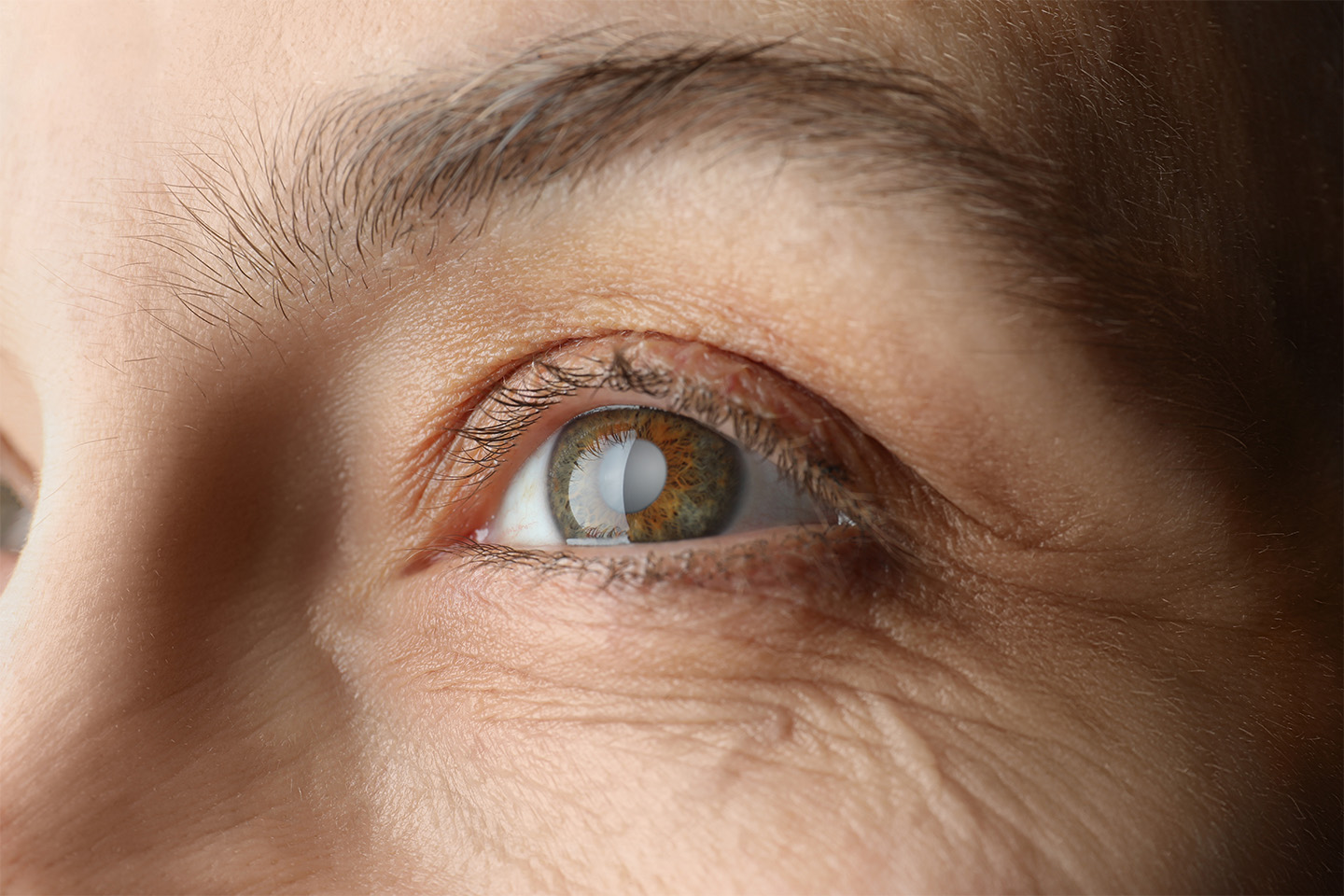Do’s & Don’ts After Cataract Surgery in Colorado

Congratulations! Your cataract surgery in Denver with our leading eye surgeons was a success. You waited a short amount of time in post-op recovery and now you’re already at home, recovering, and you know that soon you’ll see better than you have in quite a while. What do you need to do now during this part of your cataract surgery recovery healing process?
Post-Surgery Precautions
The hours and days following cataract surgery are a critical part of your healing journey. While the procedure itself is quick and low-risk, your body still needs time to adjust.
During this phase, the goal is to minimize strain and avoid anything that could disrupt the healing process. You may notice mild discomfort, light sensitivity, or blurred vision early on—all of which are normal. The best thing you can do is rest, follow your doctor’s instructions carefully, and give your eye the gentle environment it needs to recover.
It is also important to use prescribed antibiotic eye drops to prevent infection and ensure proper healing. While you may start feeling better within a few days, your eyes will not be completely healed and need adequate time for recovery. Treating underlying conditions like glaucoma can ensure better outcomes after cataract surgery.
Things You Should Do During Recovery
- Do take your medication as prescribed so healing can progress as planned. You’ll get antibiotic eye drops and anti-inflammatory ones as well. Follow the schedule exactly, frequently at first and until the time is up to prevent infection.
- Do go ahead and take a basic shower or bath, watch limited TV, or use the computer a little. Wear protective glasses to shield your sensitive eyes during the recovery process. You can resume wearing contact lenses once your doctor gives the go-ahead, usually after the initial healing period.
- Do let us know if your blurry vision persists after recovery. Many patients get excessive scar tissue growing around the replacement lens, which a simple procedure called a YAG laser capsulotomy can resolve.
- Do enjoy some downtime so your eye can heal, even if you have a busy lifestyle. The only measure of when it’s time to get back into your activities, slowly at first, is when your doctor examines your eye and says it’s okay.
Things You Shouldn’t Do During Recovery
- First, try not to bend over or sneeze immediately after surgery. These activities put pressure on the eye when it’s starting to heal. Don’t do any heavy lifting or perform strenuous activities or exercise either.
- Don’t drive the day after surgery; let things settle first.
- Stay out of dusty areas and keep indoors when pollen is heavy in the air.
- Don’t rub or touch your eye: Healing often involves itching, and that’s the case with cataract surgery recovery. It may feel dry as well, which can be annoying, especially if you have tended to experience dry eyes in the past. It will pass, day by day. Still, don’t rub or touch your eye to avoid the risk of infection.
- Stay out of hot tubs, swimming pools, and immersion. A little rain won’t hurt, but underwater is another matter due to the risk of bacteria leading to infections.
Following these guidelines gives your eye the best chance to heal quickly and without complications. Everyone’s recovery timeline is a little different, so be patient and trust the process. When in doubt, reach out to your eye care provider—they’re here to support every step of your recovery and help minimize the risk of infection.
How Long Does Cataract Surgery Recovery Take?
Cataract surgery is straightforward, but your eye does take time to heal. The more it gets a chance to heal right away, the better your results will likely be. Initially, vision may be blurry, but this is a normal part of the recovery process and will improve as the eye heals. The stages of healing include the initial closure of the incision and the longer-term recovery of vision clarity. It is important to manage discomfort and follow medical instructions during the recovery period to ensure proper healing. Typically, plan on about four weeks for full recovery after cataract surgery. Typically, plan on about four weeks for full recovery after cataract surgery.
Medications and Eye Care
Your prescribed eye drops play a vital role in preventing infection, reducing inflammation, and supporting a smooth recovery. Most patients go home with a combination of antibiotic and anti-inflammatory drops to be used on a specific schedule. These drops help your eye adjust to the new lens and reduce the risk of complications.
To get the most out of your medications:
- Follow the dosing schedule exactly—timing is essential for effectiveness
- Wash your hands thoroughly before touching your eyes or applying drops
- Avoid letting the dropper touch your eye, which could introduce bacteria
- Use artificial tears (only if approved) to ease dryness or irritation
- Do not rub your eyes, no matter how itchy or dry they may feel
Your doctor may also recommend over-the-counter lubricating drops to keep your eye comfortable. If you experience any unusual pain, swelling, or changes in vision, report it promptly. Complications can often be successfully treated, so staying consistent with your eye care routine plays a big role in how quickly—and how well—you recover.
Resuming Normal Activities
Most patients are pleasantly surprised at how quickly they feel ready to get back to everyday life after cataract surgery—but it’s still important to take it slow. Your vision may improve quickly, but your eye is still healing beneath the surface. Understanding the timeline to resume activities is crucial for optimal recovery. Within the first couple of days, you can enjoy light activities like watching TV, reading, and using your phone or computer in moderation.
Safe early activities include:
- Taking short walks around your home or outside, avoiding uneven terrain
- Resuming light household tasks, like cooking or tidying up (no lifting)
- Returning to work, if it’s not physically demanding, after getting cleared by your doctor
Avoid the following until your provider says it’s okay:
- Strenuous exercise, jogging, or lifting anything over 10 pounds
- Swimming, hot tubs, and saunas, which increase infection risk
- Dusty or allergen-heavy environments, which may cause irritation
You may feel ready to drive after a couple of days, but wait until your doctor confirms your vision is stable and safe. Easing back into your routine, with a bit of patience, ensures the best long-term results. Consult with your ophthalmologist regarding the need for new glasses during the recovery process, as vision stabilization can take weeks and may require a new prescription.
Follow-Up Care
Your cataract surgery recovery doesn’t end when you leave the clinic. Follow-up appointments are a key part of the process, allowing your eye care team to monitor healing and catch any potential issues early. Even if you’re feeling great and seeing clearly, these visits help ensure that everything inside the eye is healing as it should. Your eye doctor will play a crucial role in advising you on pre-surgery preparations, post-operative instructions, and monitoring your recovery to prevent complications.
At these appointments, your doctor will:
- Check your vision and eye pressure
- Evaluate the placement and condition of the artificial lens
- Answer any questions or concerns you may have about symptoms or next steps
If you’re planning surgery for both eyes, your provider will also assess when it’s safe to schedule the second procedure. Skipping or delaying follow-up care could result in missed warning signs or delayed healing, so be sure to attend every appointment as recommended.
Be aware that cataract surgery can sometimes lead to the development of a secondary cataract, known as posterior capsule opacification (PCO). If this occurs, your eye doctor may recommend a YAG laser capsulotomy, a quick outpatient procedure that addresses the cloudiness and restores clear vision. Staying connected with your care team is one of the best ways to protect your vision for the long term.
When is it Time to Do the Other Eye?
If you’re having cataract surgery in the Denver metro area on both eyes, your doctor will check the recovery progress of your first eye before scheduling the second. Patients often face challenges with depth perception and visual balance when only one eye has been operated on. The second surgery is typically scheduled a couple of weeks after the first, so it is important to consult your doctor about the right timing and precautions during this period.
Visit Our Eye Doctors at ICON Eyecare for Your Vision Needs
You’ll be glad to discover how friendly and helpful our world-class team is during any eye care visit, especially for procedures like cataract and LASIK surgery. Make an appointment today at ICON Eyecare to discuss cataract surgery.
[DISPLAY_ULTIMATE_SOCIAL_ICONS]








